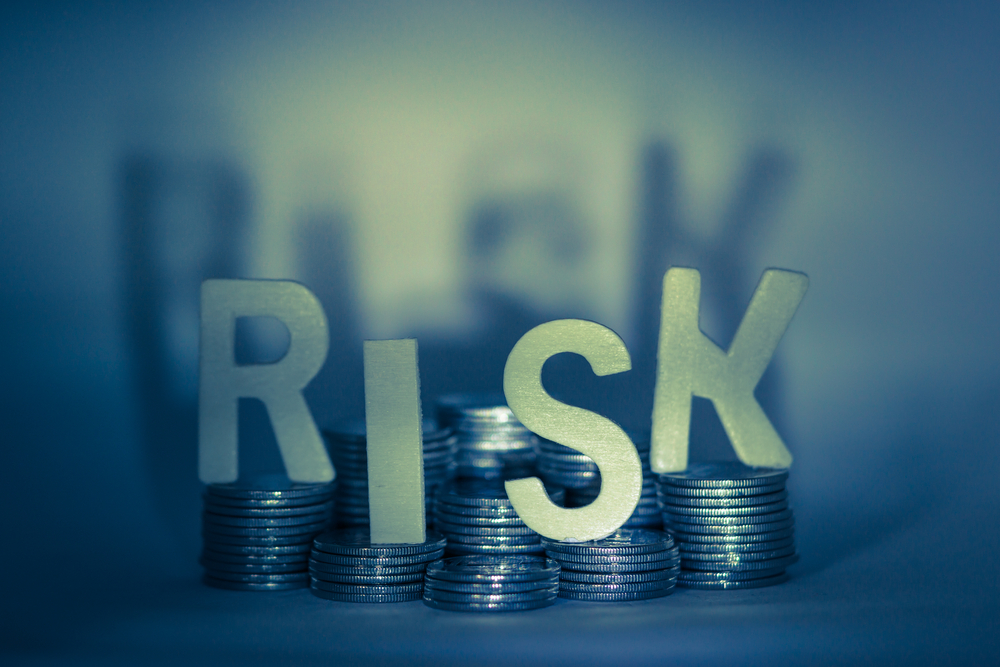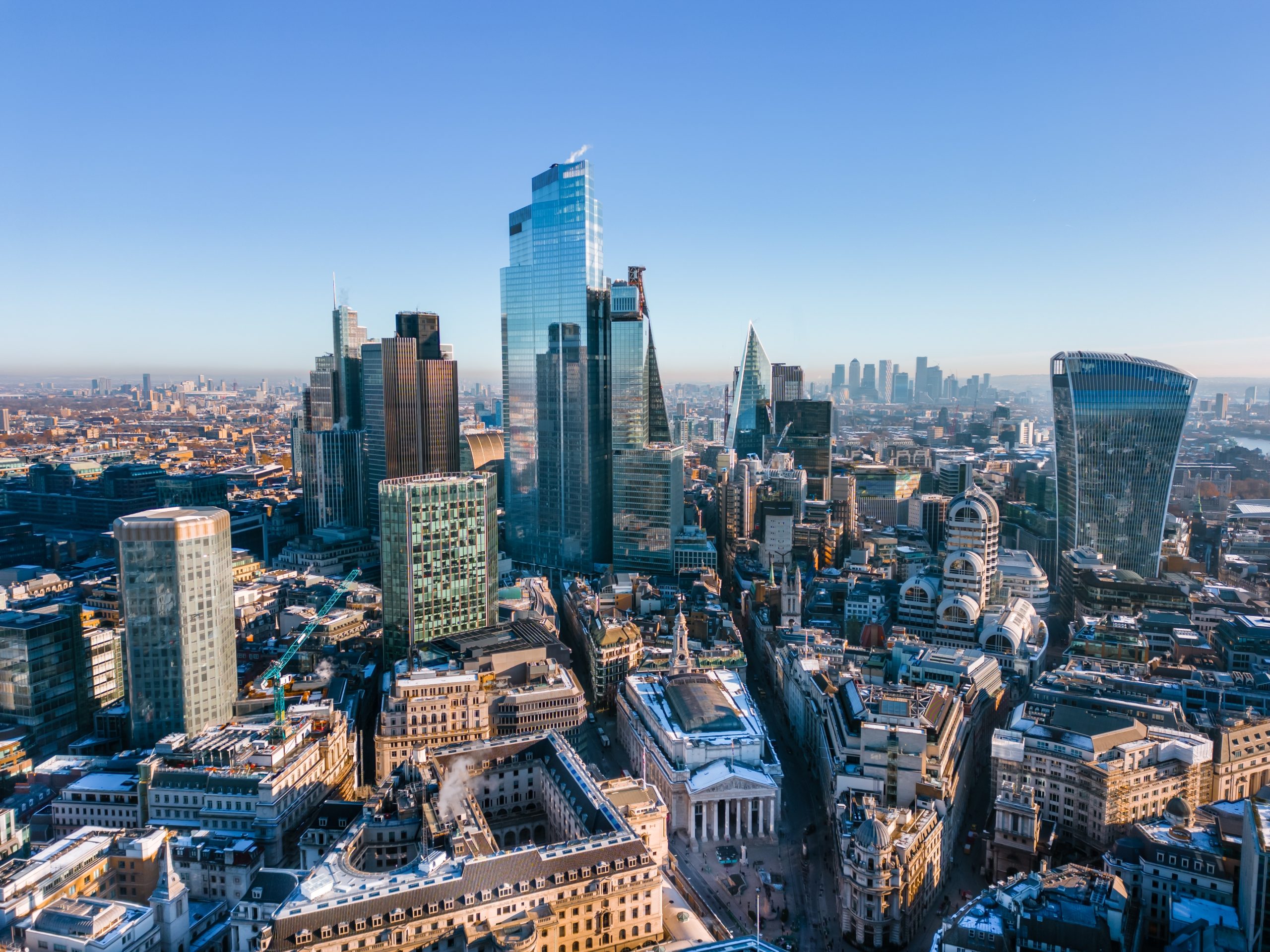
In times like these, having money in the bank is a source of comfort. With all the turbulence facing the economy, having something to fall back on helps us feel a bit less exposed to whatever dangers may lie ahead.
But are banks really a safe way to store your money and protect against an uncertain future? I’m not so sure.
In fact, I think people are currently underestimating the risks facing the banking system. It’s easy to forget the lessons of the 2007-8 crisis, or to believe that kind of threat to the banks is a thing of the past. But in my view, the opposite is true: the threat now is as great as ever.
In this article, I’m going to explain why cash in the bank isn’t a good marker of financial security during times of crisis. Instead, people should be looking to asset investment for wealth protection.
But when it comes to security, not all assets are created equal. I argue that people looking to protect their wealth should focus on assets that hold their value well and that are safeguarded against inflation – natural resources and real estate foremost among them.
Trust in banks after the 2007-8 crisis
I think it’s important that we remind ourselves of a simple but easily overlooked fact: banks are fundamentally businesses. And like any business, they are seeking to maximise their profits.
Most commercial banks don’t really advertise this fact, of course. And for that reason, many people like to imagine that any savings they have in the bank are just sitting there, on hand for whenever they need them – as though the banks were just offering them a service out of the goodness of their hearts.
Any lending activity carries risks, however. And usually, the more lucrative the return, the higher the risks. In extreme cases, banks can lose the money that they lend out – your money.
This kind of speculative lending on the part of banks was the root of the 2007-8 crisis. In simple terms, banks were making risky loans to those who couldn’t afford it, driven by the prospect of outsized profits – especially in the US, where subprime mortgages were seen as an unmissable investment opportunity.
But when the US housing market crashed, all the mortgage-backed securities that had flooded the global banking system were suddenly worthless, and the banks started to realise how overleveraged they were. By that point, it was a case of too little, too late.
I vividly remember seeing the queues that suddenly began to form outside Northern Rock in September 2007 – hundreds of people in a long, unmoving line. Some had come prepared with foldout camping chairs, ready for the long haul. And none of them were sure if they would be able to get their money back.
This was an eye-opening moment, for me as for so many others. People had to confront the fact that all their hard-earned cash wasn’t just waiting for them to come and get it – it might not even be there at all.
We now know that the Northern Rock bank run – the first in the UK in 140 years – was just the starting pistol for a protracted crisis. By some metrics, we’ve still yet to fully recover: real wages and labour productivity have both remained stagnant ever since. And the cost to the British taxpayer has been astronomical, with tens of billions still owed.
Understandably, this profoundly damaged peoples’ trust in the banking sector. After all, there was little doubt about where the blame for 2008 really lay. An inquiry by the US government concluded in no uncertain terms that “a combination of excessive borrowing, risky investments, and lack of transparency put the financial system on a collision course with crisis.”[1]
In 2018, ten years on from the crisis, a survey found that two-thirds of adults in the UK did not trust banks to work in the best interests of society.[2] Yet despite this, people continue to believe that banks can safeguard their money. According to a recent survey, nearly two-thirds of people trust high street banks like HSBC and Lloyds to protect their cash.[3]
I firmly believe that such faith is misplaced. While some would like to think that lessons have been learned from the events of fifteen years ago, I’m not convinced that much has really changed. In fact, as I’ll explain below, I think the risks of a banking collapse are as high now as they’ve ever been.
And it’s high net worth individuals who are most at risk. Following the Great Recession, the Financial Services Compensation Scheme (FSCS) raised its deposit protection to £85,000 per person per firm. Beyond this, your money is at the mercy of the banks.

The ongoing risks to the banking sector
In a recent post for the Seventy Ninth Journal, my brother, Jake, highlighted the extreme uncertainty facing the global economy – we’re talking the kind of situation not seen in more than half a century.[4]
And if we look a bit more closely at what’s going on in the UK economy, we can see some signs that are eerily reminiscent of 2008. Banks are once again over-lending, but this time it’s consumer credit rather than mortgages that’s the major focus.
As reported recently by the BBC, credit card borrowing grew in June at the fastest rate in nearly 17 years, according to Bank of England figures. Borrowing on credit cards grew at an annual rate of 12.5% – the fastest pace since November 2005.[5] Meanwhile, saving is slowing. The £1.5bn rise in cash sitting in households’ bank accounts was far smaller than the £5.2bn rise in May and the 2019 average monthly rise of £4.6bn. Place this against a backdrop of ever increasing inflation and living costs and it’s easy to see why borrowing is increasing while saving rates are diminishing.
Of course, mortgage risks are still present. A recent study found that half a million homeowners in London and the South East are facing a “mortgage ticking time bomb” as rising interest rates cause problems for borrowers.[6] And with as many as a third of fixed-rate mortgage holders on agreements of 24 months or less, the likelihood of ongoing rate hikes spells big problems ahead.[7]
Despite such risks, the Bank of England recently scrapped its mortgage affordability test – a test designed to ensure borrowers could afford a 3% rise in interest rates.[8]
We also need to factor in the wider prospect of an economic slowdown hitting businesses and putting jobs at risk. The Bank of England is now projecting a recession lasting five consecutive quarters from Q4 2022, and negligible economic expansion until the end of 2025.[9]
I think it’s important that we don’t try to downplay what is happening for the sake of our own comfort. The dangers here are obvious if we are willing to take a clear and honest look at the data. We are looking at a protracted economic slowdown, in an environment where banks have been willing to lend significant amounts of money to people with little to fall back on, as rampant inflation begins to bite. Many of these people are unlikely to be able to afford the ever increasing repayments as interest rates climb and the economy contracts.
As a result, my view is that the safety of banks is currently very low, and I would be unsurprised to see a repeat of 2008 – except in this case there won’t be public money on hand to bail the sector out. After all, the Bank of England is confident that the UK’s banks are no longer “too big to fail”.[10]
And all this is to ignore the elephant in the room: inflation is predicted to hit 13% by October, with some expecting it to hit 15% early next year.
For those with significant amounts of cash in savings, this should be a troubling prospect. Even the limited benefit of rising interest rates can’t offset the declining value of the pound and the wider risks of a banking collapse.
But what’s the best way to protect your wealth in this situation?

Turning to safe haven assets to protect your wealth
It likely won’t be a surprise to you if I say that asset investments are a far safer option right now than holding cash in the bank, especially with inflation hitting historic levels and eroding the value of currencies around the world.
But in such a volatile environment, that just begs the question: which assets can best weather the storm that we can see gathering on the horizon?
My father, David, has always stressed to me the virtues of two key asset classes for their ability to retain value in even the direst circumstances: natural resources and property. And I’m fully in agreement on this point.
Natural resources – and gold in particular – have long been regarded as safe haven assets in a crisis, and for good reason. One aspect that I think is currently underplayed is the role of gold and silver as alternate currencies in times of acute financial disruption. Just last month, the Bank of Zimbabwe began issuing gold coins to tackle rampant inflation.[11] As developing economies continue to struggle, I would not be surprised to see this strategy to develop further, pushing up the price of gold worldwide.
Real estate has a similar reputation as an inflation hedge, in part because it tends to maintain independence from the stock market. Additionally, wage increases in an inflationary environment can drive up budgets for renting and buying.
For all of us at the Seventy Ninth Group, this focus on natural resources and real estate is more than just an opinion – it’s shaped our entire investment strategy. And we’ve always been happy to put our money where our mouth is, investing our family funds alongside those of our investors, on every project we take on. This long-term approach to building safe and sustainable investment opportunities has put us in the perfect position to thrive during the times of crisis that are now upon us.
Our Seventy Ninth Resources brand is now the largest owner of natural resources concessions in West Africa, having secured major permits in the Republic of Guinea’s resource-rich Siguiri Basin. Our Seventy Ninth Luxury Living brand, meanwhile, has persistently sought out opportunities in areas of high capital growth and increasing rental demand – thanks to our extensive experience in the sector, we’re able to see potential where others don’t.
Curt Webster is the Investment Director at the Seventy Ninth Group. If you’d like to chat with him about how our asset investment opportunities could help you protect your wealth in these troubled times, get in touch today.
Sources:
[1] – The Financial Crisis Inquiry Report
[2] – “British public don’t trust banks 10 years after crisis, survey finds” Reuters, August 2018
[3] – “Pandemic prompts more trust in banks” AltFi, September 2021
[4] – “All that glitters: Turning to gold in uncertain times” The 79th Journal, June 2022
[5] – “Credit card borrowing in fastest rise since 2005” BBC News, July 2022
[6] – “Half a million facing mortgage timebomb” Evening Standard, August 2022
[7] – “UK mortgage holders face higher bills as their fixed-rate contracts expire” FT, August 2022
[8] “Mortgage affordability test scrapped by Bank of England” BBC News, August 2022
[9] – “Households face biggest fall in real incomes on record” The Telegraph, August 2022
[10] – “UK banks no longer too big to fail, says BoE” Reuters, June 2022
[11] – “Zimbabwe launches gold coins to tackle soaring inflation” BBC News, July 2022














